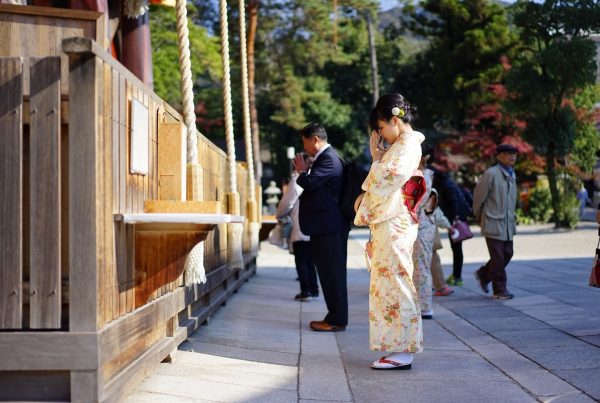If you are considering doing business in Japan in 2024, then it’s important to learn that the Japanese business environment values respect, precision, and a bit of formality. Japan is known for its distinct business practices which can be quite different from those in the West. Don’t worry. We will help you by presenting 5 fundamental aspects about doing business in Japan so that you have all the knowledge needed to build trust and establish a connection with your Japanese colleagues.
5 Things You Need to Know About Doing Business in Japan
Understanding key cultural norms can be the difference between a successful business venture and a diplomatic faux pas. Here are five critical areas to focus on when doing business in Japan.
How to Dress
In Japan, appearances are very important, and this is particularly true in the business context. Men are expected to wear dark-colored business suits with a tie, while women should wear business suits or dresses that are conservative in style. The key is to look neat and conservative. It’s better to err on the side of formality and avoid casual clothing unless explicitly told otherwise.
Dressing appropriately is seen as a sign of respect and can significantly influence the first impression you make. Japanese business culture tends not to favor flashy or overly fashionable outfits in professional settings, so keeping it simple and professional is your safest bet.
Bowing
Bowing is an integral part of Japanese culture, especially in business settings. It’s a sign of respect and is used when greeting someone, expressing thanks, apologizing, or saying goodbye. The depth and duration of the bow depend on the situation and the level of respect you want to convey. A slight nod is casual and often used among equals. A deeper, longer bow shows significant respect and is appropriate in formal settings.
Don’t worry about perfecting your bow on the first try; your Japanese colleagues will appreciate your effort to adhere to their customs. Observing others and practicing will make you more comfortable with this practice.
The Titles of People Matter
Using titles correctly is very important in Japanese business culture. Addressing someone by their last name followed by “san” is a common and respectful practice. Refrain from using first names unless you have been invited to. This practice shows your respect for hierarchy and formality, which are highly valued in Japanese society.
If you are unsure of a person’s title, it’s safer to ask discreetly rather than risk using the wrong form of address. This attention to detail in addressing colleagues and business partners can go a long way in establishing harmonious professional relationships.
Be Prepared to Remove Your Shoes
In many traditional settings, including some companies, you may be expected to remove your shoes. This might happen in restaurants, homes, and also in some corporate settings. It’s wise to ensure that your socks are clean and in good condition. In some cases, you might be provided with slippers to wear inside.
This practice is rooted in keeping indoor spaces clean and respecting the host’s environment. Being quick to adapt by observing those around you can help make these transitions seamless.
Use Interpreters
Even though many Japanese businesspeople speak English, using an interpreter can be beneficial, especially during formal meetings and negotiations. This ensures that all parties fully understand the nuances of the discussions, which can be crucial in business dealings. Hiring a professional interpreter demonstrates your commitment to clear and respectful communication.
Additionally, an interpreter can help bridge the cultural and linguistic gap, making meetings more productive and avoiding misunderstandings. This is especially important in a high-context culture like Japan, where communication is often subtle and indirect.
How to Find the Best Japanese Distributor
Finding the right distributor in Japan is crucial for the success of your product in the local market. The Japanese market values long-term relationships and reliability, so choosing a distributor who understands your business values and target audience can make a significant difference. You can start by looking at Japanese distributors that have English speaking teams. This way, the collaboration will go smoother.
When selecting a distributor, consider how well they understand the nuances of the Japanese market. It’s beneficial to choose a partner who not only distributes your products but also provides valuable insights into consumer preferences and market trends. This can include advice on product adjustments to better suit local tastes and expectations.
Additionally, it’s important to establish clear communication from the outset. Define your goals, expectations, and the level of support
Conclusion
Doing business in Japan requires an understanding of and respect for local customs and etiquette. By paying attention to how you dress, greet, and communicate, you set a positive tone for all your business interactions. No matter if you want to start a business from scratch or are looking to expand your presence in Japan, you can be sure that the tips shared today will help you achieve your goals.









